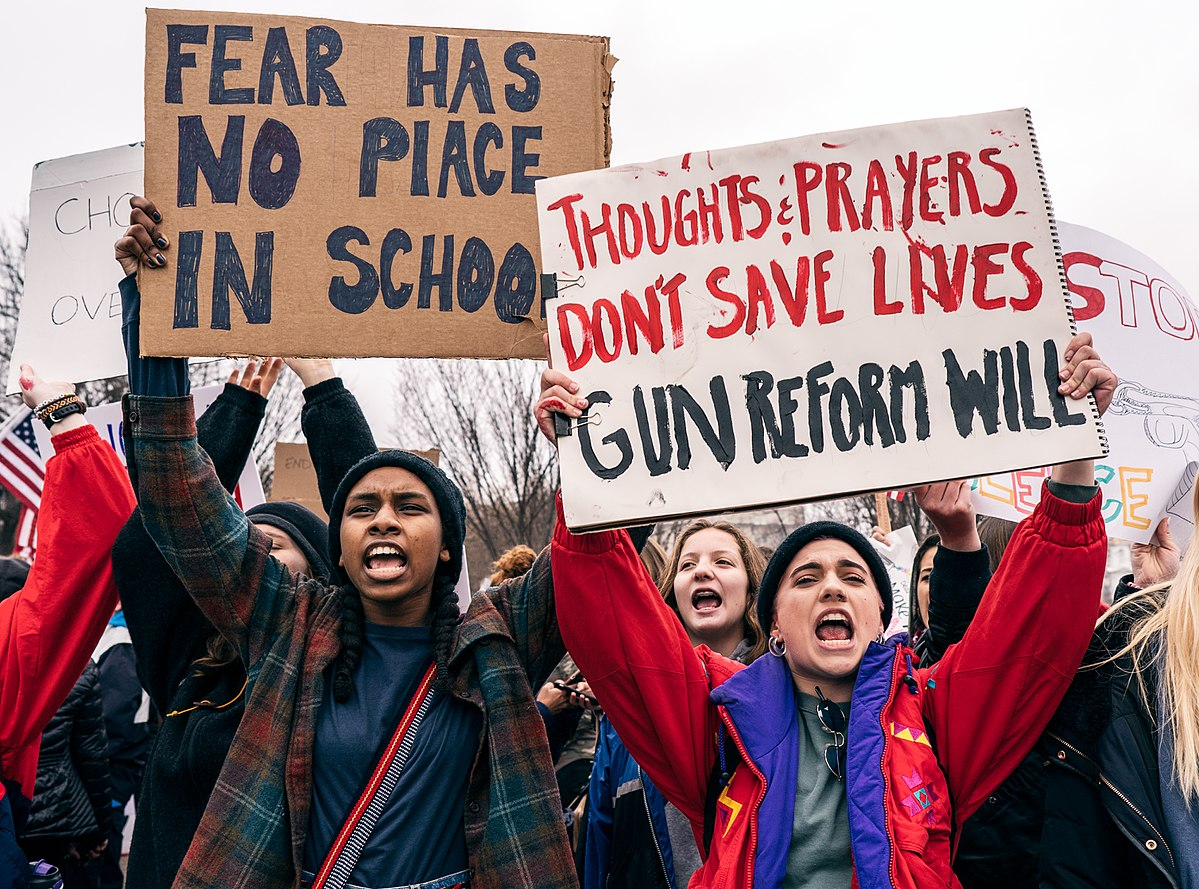How Marjory Stoneman Douglas Will Change History
April 24, 2018
Day by day, we see more activism coming from students and young adults than from baby boomers. This activism suddenly made a huge leap starting on February 14, the day of the Parkland massacre.
A major school shooting took place at Marjory Stoneman Douglas in Parkland, Florida on this day, killing 17 and injuring 17 more. This activated not only sorrow and fear, but also an uprising of students who, from that day onward, would be more involved in politics and activism than they had probably ever imagined themselves in, campaigning gun control legislation and founding the advocacy group, “Never Again”, which is now well known across the country.
All wanting badly to see change, the #NeverAgain students are working hard to win the race to making history with gun control in order to prevent other tragic situations like theirs. Together they have raised over $3.7 million in funds to aid in future events as a ‘pillow’ that they wish they would’ve had themselves. Their astonishing power and voice has led people all across the country to participate in marches like theirs for gun control and public safety, pushing forth gun-law reform.
The efforts of the survivors have definitely captured the nation’s attention, and rightly so. In fact, they’ve changed the entire gun debate, Using social media, speeches and interviews, the Parkland students have discussed the issue of gun reform with the entire United States, publicly broadcasting their opinions and needs as students and citizens, standing by all who agree and meet the same needs, and responding knowledgeably and convincingly to those who think the U.S. should go another route. These master debaters are not a force to be reckoned with, and politicians and journalists such as Michelle Cottle with “The Atlantic” have been reporting left and right that “they are unlike anything the gun debate has ever before witnessed.”
The students of Marjory Stoneman Douglas High School are proving themselves to be just the right kind of spokespeople to confidently lead our country into stricter gun laws.
“This movement, created by students, led by students, is based on emotion. It is based on passion and it is based on pain. Our biggest flaws—our tendency to be a bit too aggressive, our tendency to lash out, things that you expect from a normal teenager—these are our strengths. The only reason that we’ve gotten so far is that we are not afraid of losing money, we’re not afraid of getting reelected or not getting reelected, we have nothing to lose. The only thing we have to gain at this point is our safety,” said Stoneman Douglas senior and class president Delaney Tarr, only seven days after the attack in one of the group’s speeches about why they are so strong as a student body and why the U.S. should keep fighting for gun laws.
These gun-safety advocates have been relentlessly speaking at rallies, confronting state legislators in Florida’s capital and many other states, and gathering and encouraging students at high schools across the country to walk out of school in a show of agreement for safety in schools and communities. A nationwide march in Washington, DC, occured on March 24, along with National School Walkout Day, a coordinated protest on March 14. These protests and coordinated walk outs have led to empowerment that wasn’t expected from the eighth school shooting of 2018 alone. Social media hashtags #WeAreTheChange, #MSDStrong, #NeverAgain, and many more have gone viral and have pushed other high schools and organizations to step up and lead their communities in protest.
Some state lawmakers such as those in Oregon have been tightening up some gun restrictions, while Florida lawmakers have started to impose a higher age limit and a longer waiting period for purchasing semi automatic rifles like the one used in the Stoneman Douglas shooting.
However, despite their tireless efforts, not everything is beginning to look up for the gun-reform on the students’ side of things. Florida state lawmakers voted against merely debating a broad ban on semiautomatic rifles, Marco Rubio wouldn’t agree to reject campaign contributions from the NRA, and GOP lawmakers in both chambers of Congress are against embracing new gun restrictions so soon, all major setbacks for the plans of the marching students.
Aside from possible failures in reforms and any other setbacks, the survivors of Stoneman Douglas High School have certainly saved their place in history books and played a huge role in forcing the gun debate out of it’s comfort zone, something that was beginning to seem impossible for the U.S.. If it were up to these students, tragedies would never happen again.
